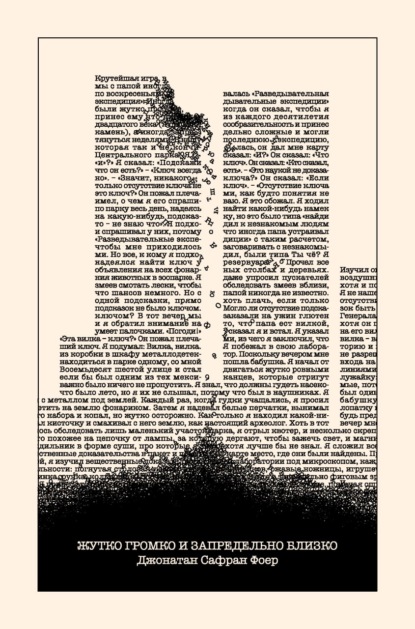
Текст
отзывы: 0 | рейтинг: 0
Полная версия
Полная версия
Shadow Of Desire
Sara Craven
Mills & Boon proudly presents THE SARA CRAVEN COLLECTION. Sara’s powerful and passionate romances have captivated and thrilled readers all over the world for five decades making her an international bestseller.Everyone depended on poor little "Mouse"Ginny's nickname didn't really suit her – she was the strong one in the family. Her sense of responsibility led her to take the job of housekeeper at Monk's Dower.It was no easy task. Not only did she have to contend with her suspicious, jealous employer, Vivien Lanyon, she also had to please Vivien's tenant, the famous playwright, Max Hendrick.At first Max was imperious, demanding – but then he seemed to sense Ginny's predicament. He extended a helping hand, but only in pity. And pity was not what Ginny wanted from Max Hendrick – not at all!
Shadow of Desire
Sara Craven
www.millsandboon.co.uk (http://www.millsandboon.co.uk)
Former journalist SARA CRAVEN published her first novel ‘Garden of Dreams’ for Mills & Boon in 1975. Apart from her writing (naturally!) her passions include reading, bridge, Italian cities, Greek islands, the French language and countryside, and her rescue Jack Russell/cross Button. She has appeared on several TV quiz shows and in 1997 became UK TV Mastermind champion. She lives near her family in Warwickshire – Shakespeare country.
TABLE OF CONTENTS
COVER (#ue44f11a7-5a57-5ae3-9d7c-f522d7c0ad9e)
TITLE PAGE (#u48e2d6f1-9750-580e-af98-b6f8fd4fce57)
ABOUT THE AUTHOR (#u7d934531-d7c5-5540-b2ed-40d0057dfac2)
CHAPTER ONE
CHAPTER TWO
CHAPTER THREE
CHAPTER FOUR
CHAPTER FIVE
CHAPTER SIX
CHAPTER SEVEN
CHAPTER EIGHT
CHAPTER NINE
ENDPAGE (#litres_trial_promo)
COPYRIGHT (#litres_trial_promo)
CHAPTER ONE (#ub40424f1-a99e-56d2-b4ce-09e05b5fb8ca)
GINNY CLAYTON packed the last carton of groceries carefully into the back of the elderly estate car and slammed the rear door shut, with a smiling word of thanks for Mr Murgatroyd who had helped her carry the boxes out of the shop. The sometimes reluctant engine started at the second attempt and the car moved away slowly, bumping over the cobbles before easing on to the road and disappearing out of the market square.
Mr Murgatroyd, dourly returning Ginny’s exuberant farewell wave, heaved a sigh before returning to the shop. His wife, busily pricing a new consignment of tinned fruit, looked up, and encountering his brooding look gave a sympathetic nod.
‘It just doesn’t seem right—a young lass like that, with all that responsibility.’ Mr Murgatroyd poked a cereal packet back into line on a shelf with quite unnecessary vigour.
‘There’s not many her age would take it on,’ Mrs Murgatroyd observed temperately. ‘The old aunt would have been put in a home, and foster-parents found for that young limb of a brother. She could have had a life of her own then.’
‘Instead of dogsbodying for that Mrs Lanyon,’ Mr Murgatroyd said fiercely. ‘That’s all she’ll be, Ida. A dogsbody.’ He seemed to relish the word in a gloomy way.
The Murgatroyds were both silent for a few moments, considering Ginny’s employer, Vivien Lanyon, the widow of the last of a long line of a once wealthy and powerful local family. The Lanyons had lost their power and most of their wealth long before Geoffrey Lanyon had been killed skiing in the Swiss Alps, and although no one in the locality was able to say precisely why such a deterioration in the family fortunes had come about, nevertheless everyone agreed that it was not because the Lanyons had ever been guilty of overpaying their staff, or treating their tenants too generously.
They were not nor ever had been a popular family, and although the local people admired the way Vivien Lanyon was hanging on at the Manor, and even making a go of her riding stables, they still agreed that she was a real chip off the old block and no mistake, more like a Lanyon born than a stranger who happened to have married into the family—and no one was under any illusion that this was intended as a compliment to the lady.
‘And that sister,’ Mr Murgatroyd continued. ‘What’s she doing about it all, I’d like to know?’
‘She’s an actress,’ Mrs Murgatroyd said, as if that explained everything. ‘I saw her on an advert on the telly last night. For hair spray.’ She affixed the last price label with an air of relief. ‘Anyway,’ she went on, ‘it’s none of our business, when all’s said and done, and there’s a load of soft drinks want bringing in.’
Mr Murgatroyd nodded, and set off for the rear of the shop in search of the soft drinks, but his mind even then was still not completely on his mission. He sighed again. ‘It just doesn’t seem right,’ he muttered.
Ginny, driving home along quiet lanes, would have been surprised to learn that she was the object of anyone’s sympathy. For the past few months she had been unable to believe her own good fortune.
Yet ‘dogsbody’ would have had a familiar ring. It was the very word that their family solicitor Mr Robson had used when he had told her about the job at Monk’s Dower.
‘You’ll be little more than a glorified caretaker, Ginny,’ he’d said, shaking his head. ‘I don’t know whether I’m doing the right thing in telling you about the position—only it does include accommodation, and I know this has been proving a problem for you.’
That, Ginny thought, was putting it mildly. The worry of trying to find a home for herself, plus an elderly lady, a small boy and a disreputable dog, had been keeping her awake at night, and deepening the shadows under her large hazel eyes.
It was incredible and frightening how life could change almost in the twinkling of an eye, so that the security she had always taken for granted was revealed as the fragile and tenuous thing it had always been in reality.
Security had been life in the tall Victorian house in the quiet country town where she had been born, with her parents and younger brother Tim, and with Aunt Mary, who had occupied the top floor of the house ever since her retirement from a career in teaching at a girls’ boarding school in the south-west of England.
It had been a quiet comfortable existence, and Ginny had found her progression from school to a secretarial course a peaceful one. She had never shared her older sister Barbara’s hankering for the bright lights, but then, as she would have been the first to admit, neither did she share Barbara’s dazzling good looks.
No one had really been surprised when Barbara opted for drama school in London, nor that when her course was finished she had stepped straight into a small part in a long-running hit in the West End.
Mr and Mrs Clayton had been delighted for her, and if they were disappointed that their glamorous eldest child so rarely found the time to come home to see them, they never admitted it. They seemed prepared to accept that Barbara now inhabited a different world, and took pleasure in her success, and the paragraphs that she now merited in the local paper.
But there had never been any question of Ginny following in her sister’s footsteps. Not that she had ever had ambitions in that direction, but if she had then a glance in her mirror would have quickly established a more realistic point of view. Her brown hair hung straight and as shining as rainwater to her shoulders, and though her eyes were large and heavily fringed with dark lashes, they were not otherwise remarkable, and nor were her other features. But, as she had often cheerfully remarked, one raving beauty in the family was quite enough, and she accepted without rancour the nickname ‘Mouse’ which her relatives bestowed on her.
She enjoyed her secretarial course. She was enjoying, with reservations, her first job in an accountant’s office. Even within the limitations of her environment, her life seemed to stretch away in front of her, full of possibilities as yet unexplored.
And then, one night of black ice, everything changed for ever. A coachload of football supporters veered across a dual carriageway and crashed into the Mini bringing Mr and Mrs Clayton home from the house of some friends. Mrs Clayton was killed instantly, but Ginny’s father lingered for a few days in intensive care.
Ginny coped because she had to, undergoing the ordeals of funerals and inquests. But there was a greater ordeal to come, one that no one had suspected. Mr Clayton’s small business had been heavily in debt, and he had borrowed from finance companies, not always wisely, using insurances and even his home as security. To her horror, Ginny learned that when all the creditors were paid, there would be hardly anything left in the way of money, and that they would no longer have a home.
In a way she was glad that her mother would never know just how flimsy the outward fabric of her life had been. Her father had never brought his business worries home with him, and for Mrs Clayton life had always been comfortable, with no shortage of little treats and luxuries.
But there was no escaping the fact that she, Ginny, was now responsible for finding accommodation for them all, and for earning sufficient money to pay the rent and support them.
Nor could she avoid the unpleasant truth that Barbara was not prepared to help in any way.
Her sister had made that more than clear during the brief time she had spent at home to attend the funeral.
‘I think you’re completely mad,’ Barbara had declared, stubbing out her cigarette in the saucer of her coffee cup. The sisters were in the kitchen having a bedtime drink the night before Barbara was due to return to London. ‘No one expects you to take on the responsibility for them all—a girl of eighteen. It’s ridiculous!’
‘But if I don’t, who will?’ Ginny asked mildly enough. Her head ached miserably and she felt drained of emotion. The last thing she wanted was an argument.
‘Well, I won’t for one,’ Barbara said bluntly. ‘There’s no room at the flat and I have my own life to lead—my career to think of, thank you very much. And so should you.’
‘I haven’t really got a career, just a job that I don’t much care about.’ Ginny carried the coffee cups over to the sink and began to rinse them under the tap. She looked round at the neat, bright kitchen with its tiles and new kitchen units which Mrs Clayton had been so proud of, and a sharp little pain twisted inside her like the turn of a knife. ‘But it’s been experience, and I can look for something that pays rather better now.’
Barbara’s lips twisted. ‘You’ll need something that pays like a bomb for what you have in mind. For heaven’s sake, Ginny, see sense. You’re biting off altogether more than you can chew. No secretary’s salary in this neck of the woods is going to pay the rent for the size of place you’d need—always supposing you found somewhere, and that won’t be easy. Where landlords are concerned, children and dogs are an anathema, take my word for it.’
Ginny turned off the hot tap with intense concentration. ‘Which do you suggest that I have put down—Tim or Muffin?’ she enquired.
‘Oh, don’t be a fool,’ Barbara snapped. ‘But you’ve got to be realistic. Just because Dad fancied himself as an amateur philanthropist, it doesn’t mean that you have to follow in his footsteps.’
‘You mean Aunt Mary.’ Ginny reached for the tea towel. ‘Doesn’t it matter to you that she’s losing her home as well?’
Barbara shrugged. ‘Of course,’ she said without any conviction. ‘But she can’t rely on you to provide her with another one. She must see that. After all, she has her pension, and there are plenty of places catering for elderly women in her position.’
‘Nursing homes, I suppose, and seedy private hotels.’ Ginny dried a cup and hung it from the appropriate hook. ‘Would you really condemn her to that, Barbie? She was Dad’s favourite aunt.’
‘But not mine,’ Barbara said coolly. ‘I don’t know how Mother put up with her all these years.’
Sara Craven
Mills & Boon proudly presents THE SARA CRAVEN COLLECTION. Sara’s powerful and passionate romances have captivated and thrilled readers all over the world for five decades making her an international bestseller.Everyone depended on poor little "Mouse"Ginny's nickname didn't really suit her – she was the strong one in the family. Her sense of responsibility led her to take the job of housekeeper at Monk's Dower.It was no easy task. Not only did she have to contend with her suspicious, jealous employer, Vivien Lanyon, she also had to please Vivien's tenant, the famous playwright, Max Hendrick.At first Max was imperious, demanding – but then he seemed to sense Ginny's predicament. He extended a helping hand, but only in pity. And pity was not what Ginny wanted from Max Hendrick – not at all!
Shadow of Desire
Sara Craven
www.millsandboon.co.uk (http://www.millsandboon.co.uk)
Former journalist SARA CRAVEN published her first novel ‘Garden of Dreams’ for Mills & Boon in 1975. Apart from her writing (naturally!) her passions include reading, bridge, Italian cities, Greek islands, the French language and countryside, and her rescue Jack Russell/cross Button. She has appeared on several TV quiz shows and in 1997 became UK TV Mastermind champion. She lives near her family in Warwickshire – Shakespeare country.
TABLE OF CONTENTS
COVER (#ue44f11a7-5a57-5ae3-9d7c-f522d7c0ad9e)
TITLE PAGE (#u48e2d6f1-9750-580e-af98-b6f8fd4fce57)
ABOUT THE AUTHOR (#u7d934531-d7c5-5540-b2ed-40d0057dfac2)
CHAPTER ONE
CHAPTER TWO
CHAPTER THREE
CHAPTER FOUR
CHAPTER FIVE
CHAPTER SIX
CHAPTER SEVEN
CHAPTER EIGHT
CHAPTER NINE
ENDPAGE (#litres_trial_promo)
COPYRIGHT (#litres_trial_promo)
CHAPTER ONE (#ub40424f1-a99e-56d2-b4ce-09e05b5fb8ca)
GINNY CLAYTON packed the last carton of groceries carefully into the back of the elderly estate car and slammed the rear door shut, with a smiling word of thanks for Mr Murgatroyd who had helped her carry the boxes out of the shop. The sometimes reluctant engine started at the second attempt and the car moved away slowly, bumping over the cobbles before easing on to the road and disappearing out of the market square.
Mr Murgatroyd, dourly returning Ginny’s exuberant farewell wave, heaved a sigh before returning to the shop. His wife, busily pricing a new consignment of tinned fruit, looked up, and encountering his brooding look gave a sympathetic nod.
‘It just doesn’t seem right—a young lass like that, with all that responsibility.’ Mr Murgatroyd poked a cereal packet back into line on a shelf with quite unnecessary vigour.
‘There’s not many her age would take it on,’ Mrs Murgatroyd observed temperately. ‘The old aunt would have been put in a home, and foster-parents found for that young limb of a brother. She could have had a life of her own then.’
‘Instead of dogsbodying for that Mrs Lanyon,’ Mr Murgatroyd said fiercely. ‘That’s all she’ll be, Ida. A dogsbody.’ He seemed to relish the word in a gloomy way.
The Murgatroyds were both silent for a few moments, considering Ginny’s employer, Vivien Lanyon, the widow of the last of a long line of a once wealthy and powerful local family. The Lanyons had lost their power and most of their wealth long before Geoffrey Lanyon had been killed skiing in the Swiss Alps, and although no one in the locality was able to say precisely why such a deterioration in the family fortunes had come about, nevertheless everyone agreed that it was not because the Lanyons had ever been guilty of overpaying their staff, or treating their tenants too generously.
They were not nor ever had been a popular family, and although the local people admired the way Vivien Lanyon was hanging on at the Manor, and even making a go of her riding stables, they still agreed that she was a real chip off the old block and no mistake, more like a Lanyon born than a stranger who happened to have married into the family—and no one was under any illusion that this was intended as a compliment to the lady.
‘And that sister,’ Mr Murgatroyd continued. ‘What’s she doing about it all, I’d like to know?’
‘She’s an actress,’ Mrs Murgatroyd said, as if that explained everything. ‘I saw her on an advert on the telly last night. For hair spray.’ She affixed the last price label with an air of relief. ‘Anyway,’ she went on, ‘it’s none of our business, when all’s said and done, and there’s a load of soft drinks want bringing in.’
Mr Murgatroyd nodded, and set off for the rear of the shop in search of the soft drinks, but his mind even then was still not completely on his mission. He sighed again. ‘It just doesn’t seem right,’ he muttered.
Ginny, driving home along quiet lanes, would have been surprised to learn that she was the object of anyone’s sympathy. For the past few months she had been unable to believe her own good fortune.
Yet ‘dogsbody’ would have had a familiar ring. It was the very word that their family solicitor Mr Robson had used when he had told her about the job at Monk’s Dower.
‘You’ll be little more than a glorified caretaker, Ginny,’ he’d said, shaking his head. ‘I don’t know whether I’m doing the right thing in telling you about the position—only it does include accommodation, and I know this has been proving a problem for you.’
That, Ginny thought, was putting it mildly. The worry of trying to find a home for herself, plus an elderly lady, a small boy and a disreputable dog, had been keeping her awake at night, and deepening the shadows under her large hazel eyes.
It was incredible and frightening how life could change almost in the twinkling of an eye, so that the security she had always taken for granted was revealed as the fragile and tenuous thing it had always been in reality.
Security had been life in the tall Victorian house in the quiet country town where she had been born, with her parents and younger brother Tim, and with Aunt Mary, who had occupied the top floor of the house ever since her retirement from a career in teaching at a girls’ boarding school in the south-west of England.
It had been a quiet comfortable existence, and Ginny had found her progression from school to a secretarial course a peaceful one. She had never shared her older sister Barbara’s hankering for the bright lights, but then, as she would have been the first to admit, neither did she share Barbara’s dazzling good looks.
No one had really been surprised when Barbara opted for drama school in London, nor that when her course was finished she had stepped straight into a small part in a long-running hit in the West End.
Mr and Mrs Clayton had been delighted for her, and if they were disappointed that their glamorous eldest child so rarely found the time to come home to see them, they never admitted it. They seemed prepared to accept that Barbara now inhabited a different world, and took pleasure in her success, and the paragraphs that she now merited in the local paper.
But there had never been any question of Ginny following in her sister’s footsteps. Not that she had ever had ambitions in that direction, but if she had then a glance in her mirror would have quickly established a more realistic point of view. Her brown hair hung straight and as shining as rainwater to her shoulders, and though her eyes were large and heavily fringed with dark lashes, they were not otherwise remarkable, and nor were her other features. But, as she had often cheerfully remarked, one raving beauty in the family was quite enough, and she accepted without rancour the nickname ‘Mouse’ which her relatives bestowed on her.
She enjoyed her secretarial course. She was enjoying, with reservations, her first job in an accountant’s office. Even within the limitations of her environment, her life seemed to stretch away in front of her, full of possibilities as yet unexplored.
And then, one night of black ice, everything changed for ever. A coachload of football supporters veered across a dual carriageway and crashed into the Mini bringing Mr and Mrs Clayton home from the house of some friends. Mrs Clayton was killed instantly, but Ginny’s father lingered for a few days in intensive care.
Ginny coped because she had to, undergoing the ordeals of funerals and inquests. But there was a greater ordeal to come, one that no one had suspected. Mr Clayton’s small business had been heavily in debt, and he had borrowed from finance companies, not always wisely, using insurances and even his home as security. To her horror, Ginny learned that when all the creditors were paid, there would be hardly anything left in the way of money, and that they would no longer have a home.
In a way she was glad that her mother would never know just how flimsy the outward fabric of her life had been. Her father had never brought his business worries home with him, and for Mrs Clayton life had always been comfortable, with no shortage of little treats and luxuries.
But there was no escaping the fact that she, Ginny, was now responsible for finding accommodation for them all, and for earning sufficient money to pay the rent and support them.
Nor could she avoid the unpleasant truth that Barbara was not prepared to help in any way.
Her sister had made that more than clear during the brief time she had spent at home to attend the funeral.
‘I think you’re completely mad,’ Barbara had declared, stubbing out her cigarette in the saucer of her coffee cup. The sisters were in the kitchen having a bedtime drink the night before Barbara was due to return to London. ‘No one expects you to take on the responsibility for them all—a girl of eighteen. It’s ridiculous!’
‘But if I don’t, who will?’ Ginny asked mildly enough. Her head ached miserably and she felt drained of emotion. The last thing she wanted was an argument.
‘Well, I won’t for one,’ Barbara said bluntly. ‘There’s no room at the flat and I have my own life to lead—my career to think of, thank you very much. And so should you.’
‘I haven’t really got a career, just a job that I don’t much care about.’ Ginny carried the coffee cups over to the sink and began to rinse them under the tap. She looked round at the neat, bright kitchen with its tiles and new kitchen units which Mrs Clayton had been so proud of, and a sharp little pain twisted inside her like the turn of a knife. ‘But it’s been experience, and I can look for something that pays rather better now.’
Barbara’s lips twisted. ‘You’ll need something that pays like a bomb for what you have in mind. For heaven’s sake, Ginny, see sense. You’re biting off altogether more than you can chew. No secretary’s salary in this neck of the woods is going to pay the rent for the size of place you’d need—always supposing you found somewhere, and that won’t be easy. Where landlords are concerned, children and dogs are an anathema, take my word for it.’
Ginny turned off the hot tap with intense concentration. ‘Which do you suggest that I have put down—Tim or Muffin?’ she enquired.
‘Oh, don’t be a fool,’ Barbara snapped. ‘But you’ve got to be realistic. Just because Dad fancied himself as an amateur philanthropist, it doesn’t mean that you have to follow in his footsteps.’
‘You mean Aunt Mary.’ Ginny reached for the tea towel. ‘Doesn’t it matter to you that she’s losing her home as well?’
Barbara shrugged. ‘Of course,’ she said without any conviction. ‘But she can’t rely on you to provide her with another one. She must see that. After all, she has her pension, and there are plenty of places catering for elderly women in her position.’
‘Nursing homes, I suppose, and seedy private hotels.’ Ginny dried a cup and hung it from the appropriate hook. ‘Would you really condemn her to that, Barbie? She was Dad’s favourite aunt.’
‘But not mine,’ Barbara said coolly. ‘I don’t know how Mother put up with her all these years.’
Другие книги автора:
Популярные книги
























